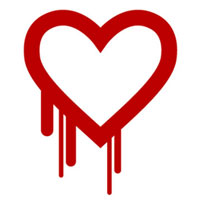
British residents are finding that access has been restricted to a Wikipedia page about “Virgin Killer,” an album by the 1970s German rock group Scorpions. Several British Internet service providers have limited access to the page because it displays an image of the album’s cover, which depicts a nude, prepubescent girl.
The ISPs took action in response to a complaint lodged this month with the UK watchdog, the Internet Watch Foundation. After receiving the complaint, the IWF — per its standard operating practice — evaluated the page using previously established guidelines for such content. It established that the album cover graphic was “a potentially illegal indecent image” of an underage child, but noted that it was hosted outside the UK.
The IWF does not issue takedown notices to ISPs outside the UK, it said — but it did advise partner hotline sites abroad, as well as law enforcement, about its assessment. The URL of the page was then added to the list provided to ISPs.
As controversies go — be they with government agencies, advocacy groups, companies or private individuals — the resolution of this particular clash was straightforward for Wikipedia.
This particular image has been brought to the attention of Wikipedia before — and, contrary to some reports, it is not banned in the U.S., said Jay Walsh, head of communications with Wikimedia Foundation, the nonprofit organization that hosts Wikipedia. Since is not illegal, it doesn’t violate copyright laws, and it is relevant to the post, it stays.
“Removing the image under the circumstances would amount to censorship,” Walsh told LinuxInsider.
Volunteer Army
Even First Amendment purists would admit the image is jarring, though, if nothing else. It is certainly arguable that this is a young girl — not a young-looking 18-year-old woman.
Wikipedia relies on its army of volunteers to separate decision-making from the emotions surrounding such content and conform with the site’s non-censorship policy, Walsh said.
“The paid staff doesn’t make content decisions — we leave that in the capable hands of volunteers, including what content should and shouldn’t be there. There has been some coverage of that particular image in the past and yet the image has remained online. That is because the community has determined it doesn’t warrant being removed.”
Careful Discussion
That said, Wikipedia has clearly given consideration to the gray areas that inevitably become part of a discussion about free speech and what is appropriate for online viewing.
For instance, the Wikipedia page on its stand about pornography notes that several images have been proposed for deletion on the grounds of being “unencyclopedic.” Volunteers proposing their removal feel either that the images add nothing to the article or that they damage Wikipedia’s reputation as a credible encyclopedia.
Interestingly, concern that some ISPs might limit access to pages bearing certain images has also been discussed.
It also should be noted that Wikipedia founder Jimmy Wales has on occasion reversed decisions to leave certain images — many of which depicted child porn or abuse — on the site.
He once removed a photograph of a sex act from its relevant article, with the comment, “This image is completely unacceptable for wikipedia — I don’t even consider this borderline.” He also congratulated an admin who deleted a drawing of a seminude seven-year old girl holding a teddy bear and sex toy in the midst of an internal but as yet unsettled debate.
Such selective editing is essential for a site like Wikipedia, said Chris Collins of Vanderpool, Frostick & Nishanian.
“The Foundation has articulated its policy very clearly — Wikipedia is a worldwide experience for people to knowledge,” he told LinuxInsider. The way Wikipedia is set up, it has no liability for the content that is posted on the site, “but it does have a duty to subscribers to maintain a site that is within the bounds or norms of society.”
The selective editing that Wikipedia occasionally does help it meet that goal without affecting its built-in protection against claims of defamation or violations of child pornography laws.











































